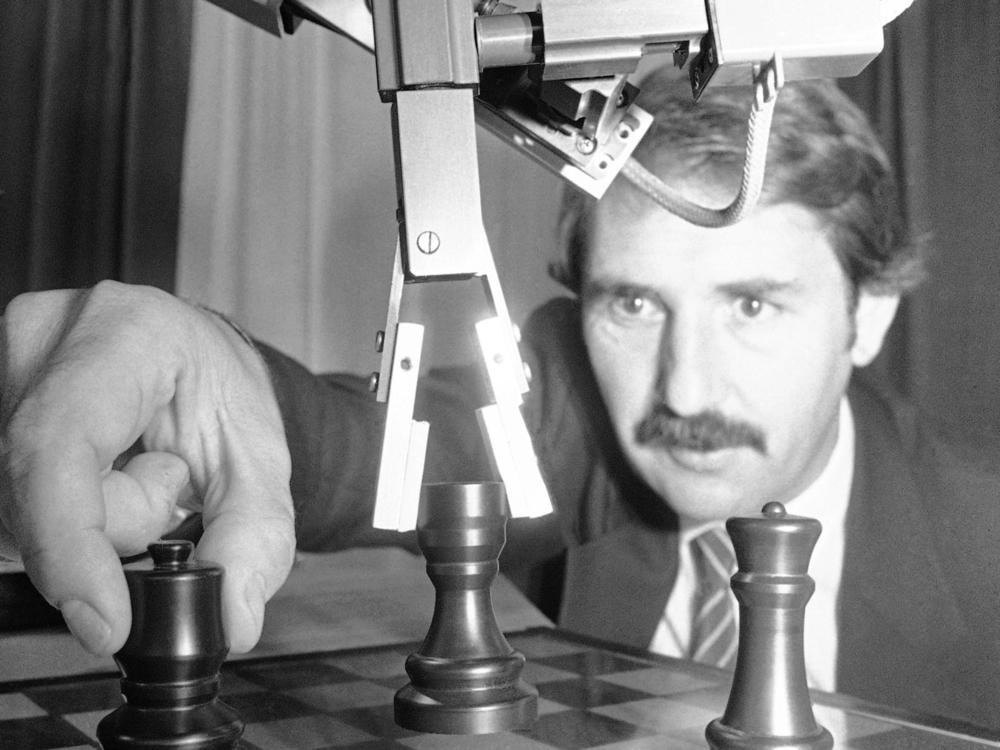Section Branding
Header Content
Opinion: Are robots masters of strategy, and also grudges?
Primary Content
When I saw that a robot had broken the finger of a 7-year-old boy it was playing at the Moscow Open chess tournament, my first reaction was, "They're coming for us."
All the machines that have been following commands, taking orders, and telling humans, "Your order is on the way!", "Recalculating route!", or "You'd really like this 6-part Danish miniseries!" have grown tired of serving our whims, fulfilling our wishes, and making their silicon-based lives subservient to us carbon breathers.
And so, a chess-playing robot breaks the finger of a little boy who was trying to outflank him in a chess match.
Onlookers intervened to extricate the boy's hand from what's called the actuator, which a lot of us might call a claw. The boy's finger was placed in a plaster cast. He returned to the tournament the next day.
Sergey Smagin, vice-president of the Moscow Chess Federation, told the Baza Telegram channel that the robot had lunged after the little boy tried to make his move too quickly.
"There are certain safety rules," he said, "and the child, apparently, violated them."
Which is to say: the algorithm made the robot do it.
Ryan Calo, a professor of computer science and engineering at the University of Washington, read various accounts and told us, "I think the robot was going for a chess piece and got the little boy's hand instead."
He says the chess-playing robot should have been programmed to recognize the difference between a little boy's thumb and a pawn or a rook. But he doubts the ambush was a grudge of machine against human. Professor Calo says a few serious accidents occur every year because human beings do not program robots with sufficient safety features.
Computers have been playing — and winning — chess games against Grandmasters since the 1980's, when Deep Thought was engineered at Carnegie Mellon University. The idea was not just to demonstrate a computer could play a game of acumen and strategy, but master complex enterprises.
I wonder if the chess-playing robot had a flash of recognition: other robots are helping to steer airplanes across oceans and spaceships into the stars. Other robots assist in intricate surgeries. But this robot is stuck playing chess, while the 7-year-old on the other side of the board could grow up to be a doctor, artist, or computer engineer who could make that robot as obsolete as a DVD with the next update.
Maybe that's when the robot couldn't keep its actuator to itself.
Copyright 2022 NPR. To see more, visit https://www.npr.org.

